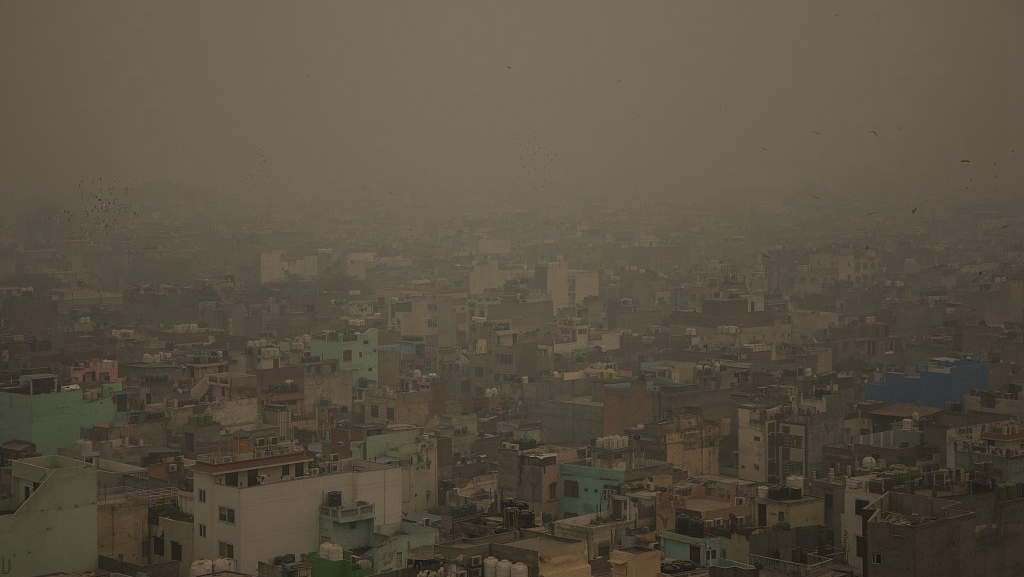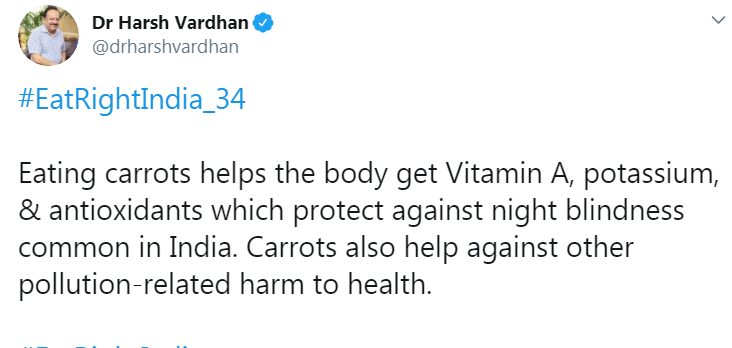
Schools have been closed and vehicular traffic restricted to deal with toxic smog enveloping New Delhi, capital of India for last week. /VCG Photo
Schools have been closed and vehicular traffic restricted to deal with toxic smog enveloping New Delhi, capital of India for last week. /VCG Photo
More than 35 flights were diverted and over 500 delayed due to heavy smog affecting visibility in India's capital New Delhi. Choking pollution has forced authorities to declare an "air emergency," leading to a shutdown of schools and restrictions on vehicular traffic from Monday.
New Delhi - one of the world's largest urban agglomerations with a population of nearly 20 million - has been enveloped by extremely hazardous air for the last week. Pollution levels have reached hazardous levels, with monitoring machines getting maxed out.
The Air Quality Index (AQI) at many locations crossed the 999-threshold, the maximum reading that an air monitoring system can record. On Sunday, the 24-hour average AQI hovered at 494, the highest in the last three years. In 2016, it stood at 497.
Extremely fine particles known as particulate matter (PM2.5) crossed the 530-mark on Monday, nearly 100 times the levels recommended by the World Health Organization (WHO).
Every year, farmers in the neighboring state of Punjab and Haryana burn paddy straws to clear their fields. The smoke travels to and lingers over the capital, turning it into a "gas chamber." Vehicular emissions and industrial pollution further exacerbate air pollution levels.
Political tussle over air pollution
According to the Delhi government, pollution from local sources in the city has been reduced by nearly 25 percent, but smoke from crop burning continues unabated, choking the national capital.
The intense pollution has also led to a caustic political debate, with the Delhi government blaming the central government for not taking adequate measures to curb the burning of crop residue.
"Even the central government accepts that 46 percent of the pollution in the region is because of it [crop stubble burning]. What is the union government doing to save the region from choking pollution?" questioned Manish Sisodia, deputy chief minister of Delhi.
Concerned over the state frequently being blamed for causing pollution in Delhi, the Punjab Chief Minister Amarinder Singh lashed out, saying "Instead of addressing the problem, Delhi Chief Minister Arvind Kejriwal is playing political games," according to a PTI report.
While top ministers from both states indulged in a verbal duel, Indian Union Minister of Environment, Forest and Climate Change Prakash Javadekar said in a tweet: "I appeal to all agencies to work together in combating air pollution and give relief to people and not indulge in cheap politics."

India's union minister for health and family welfare in a tweet suggested people eat carrot to deal with air pollution. /Twitter Screenshot
India's union minister for health and family welfare in a tweet suggested people eat carrot to deal with air pollution. /Twitter Screenshot
Schools closed, construction work stopped, traffic restricted
In order to control emissions, construction work has been suspended, a power plant in Badarpur has seen its operations halted and brick kilns around the city have been closed until November 10.
Schools will remain closed in Delhi and the National Capital Region (NCR) consisting of Gurugram, Noida and Faridabad for the whole of this week.
The Delhi government has also enforced an "odd-even scheme" for reducing the number of vehicles on the roads. On specified days, vehicles with registration numbers ending with even or odd numbers will be allowed on the roads from Monday onward.
Timings have also been staggered for 42 government offices to deal with traffic congestion and any fallout from implementing the odd-even scheme. Employees working in 21 government offices will be able to start their work from 10.30 a.m. to 7 p.m. The rest of the offices would be operational from 9.30 a.m. to 6 p.m.
While residents struggle to cope with the pollution, Harsh Vardhan, the union minister for health and family welfare suggested via Twitter that people should eat carrots to deal with the pollution.
"Eating carrots helps the body get Vitamin A, potassium, & antioxidants which protect against night blindness common in India. Carrots also help against other pollution-related harm to health," the tweet said.